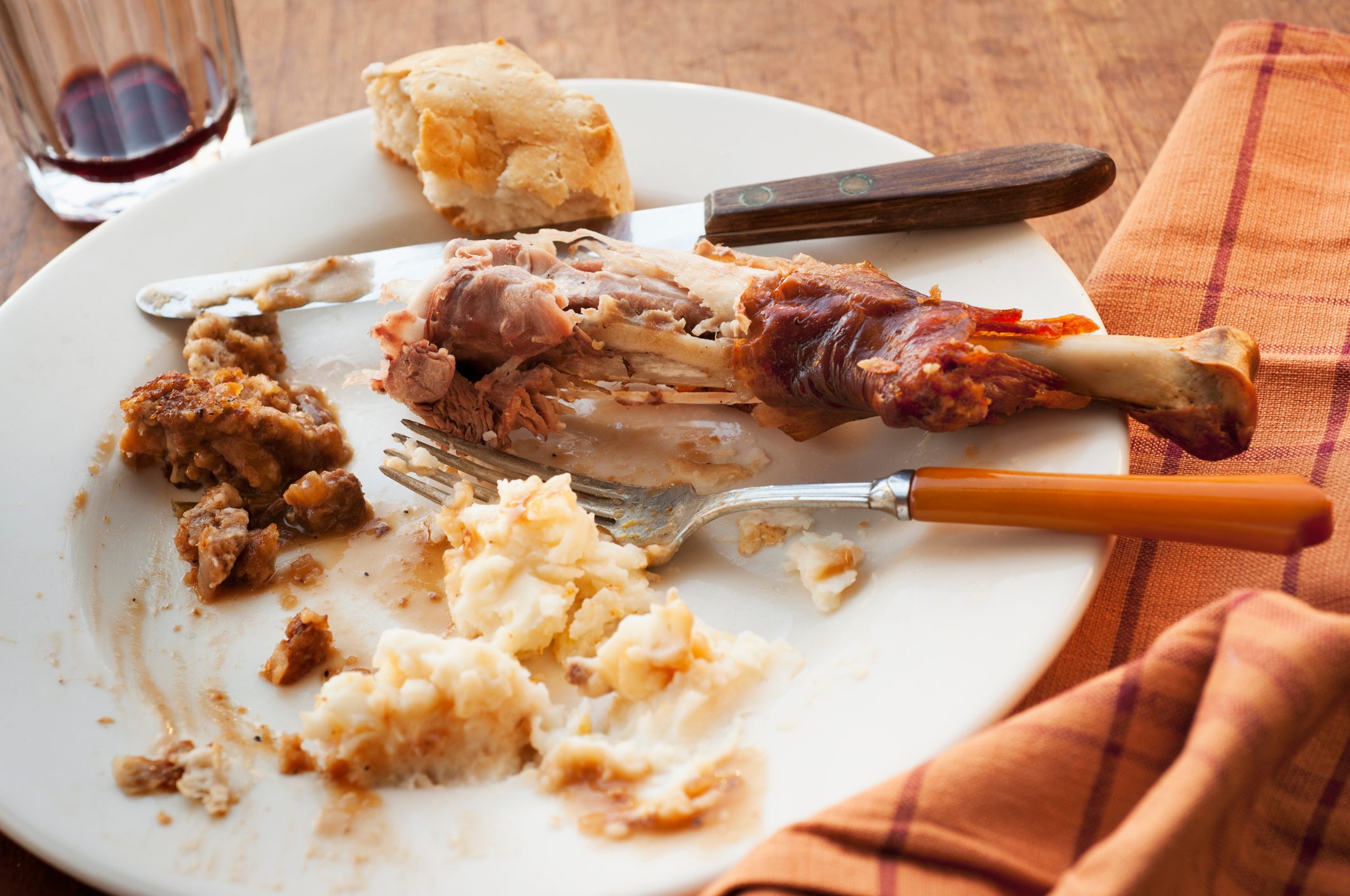Millions of Americans have a fridge full of Thanksgiving leftovers. A Cleveland Clinic expert reveals what's safe to eat when Monday rolls around.

Here’s How Long Leftover Turkey Really Lasts, According to an Expert

Thanksgiving may have come and gone, but for many Americans, leftovers continue to dominate the menu. If your own fridge is still brimming with turkey, mashed potatoes, and stuffing, you may be wondering just how long the gravy train can safely last.
According to Beth Czerwony, RD, a registered dietitian at the Cleveland Clinic, most meals can sit for up to four days in the fridge—assuming they were stored properly. This means that if you prepared your Thanksgiving feast on Thursday, that following Monday would be the final day to eat it without risking a foodborne illness.
Czerwony notes that ideally, your leftover turkey and side dishes should have been put away in shallow, airtight containers shortly after being served. Doing so helps to prevent your food from entering a temperature “danger zone” between 40 to 140 degrees Fahrenheit, she says. “Within two hours, you want to start packing the food up. When storing leftovers in the fridge, use shallow containers and put them above any sort of raw meats so they don’t get contaminated,” Czerwony shared via the Cleveland Clinic’s Newsroom.
If you won’t finish your leftover turkey today but don’t want to waste it, you can also freeze it by the fourth day after serving without raising your risk of food poisoning.
Other sources suggest frozen leftovers will stay safe if you eat them within three to four months.
Experts add that bacteria will not usually change the taste, smell, or appearance of your food—meaning it may be difficult to determine whether it is safe or dangerous to eat. If you’re in doubt any about the safety of a food, err on the side of caution and do not consume it.
Czerwony emphasizes that you should also take extra care when thawing and reheating your leftovers, using a thermometer to ensure they’ve reached safe temperatures for killing off bacteria. “If you’re reheating leftovers, you really want to make sure they reach a temperature of 165 degrees Fahrenheit, and that’s for any type of food—not just for the turkey,” she says.
Do not thaw your leftovers by leaving them on the counter. Instead, you can thaw them in one of three safe ways:
- Microwaving them
- Thawing them in the refrigerator overnight
- Putting it in a leak-proof container to thaw in cold water
Though anyone can experience the symptoms of food poisoning—which include diarrhea, stomach pain or cramps, nausea, vomiting, and fever—Czerwony warns that seniors, children, and people with compromised immune systems may be at the greatest risk of foodborne illness.
So, as we reach the fourth and final day of refrigerated Thanksgiving leftovers, proceed with caution. Freeze your food or toss what remains, preferably to the composting bin, to avoid a regrettable end to the holiday.
For daily wellness updates, subscribe to The Healthy by Reader’s Digest newsletter and follow The Healthy on Facebook and Instagram. Keep reading:




















